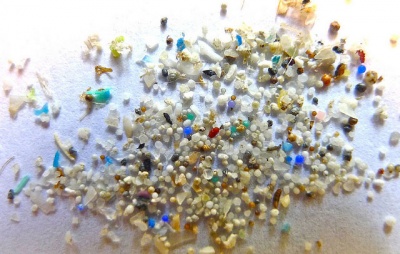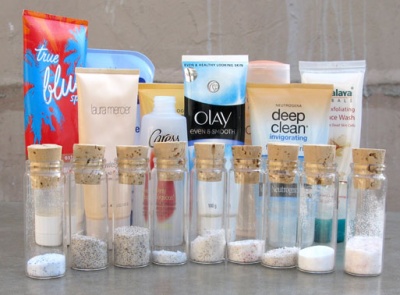Calls for UK to follow US microbead ban

Last week (28 December), President Barack Obama signed the Microbead-Free Waters Act, which will phase out cosmetics containing synthetic plastic microbeads from July 2017, with a complete ban coming into effect on 1 January 2018.
Microbeads are bits of plastic less than five millimetres wide, mainly made from polyethylene (PE), but sometimes also made from polypropylene (PP), polyethylene terephthalate (PET), polymethyl methacrylate (PMMA) and nylon. They are often used as exfoliants in cosmetic products like face wash and toothpaste. Due to their size, they are able to slip through water filtration systems and subsequently often end up in waterways.
The beads do not biodegrade and are liable to be ingested by marine wildlife such as fish and birds. While some fish can excrete plastic, others cannot and so accumulate plastic in their body. A study published for the Convention on Biological Diversity found that around 35 per cent of fish have microplastics in their stomachs, with one fish examined containing 83 fragments of plastic.
In addition, research carried out by International Pellet Watch has suggested that their surface can absorb organic pollutants such as PCBs and DDT from the marine environment. These can then be passed on to animals ingesting the plastic. Research is currently being undertaken by the National Oceanic and Atmospheric Administration in America to determine whether microplastics affect the health of this marine life and if the chemicals then transfer to humans eating polluted wildlife.
‘Big time havoc’ in America’s waterways
A study published in the American Environmental Science and Technology journal in September reported that over eight trillion microbeads were entering the US’s waterways each day, enough to cover the surface of 300 tennis courts.
Fred Upton, Chairman of the US House of Representatives’ Energy and Commerce Committee, said: “It’s a banner day for Lake Michigan and the Great Lakes. We now have a bipartisan law on the books to cleanse dirty microbeads from all our nation’s waters. Microbeads may be tiny plastic, but they are wreaking big time havoc in our waters.”
Calls for UK to follow suit

The Green Party is now calling for the UK to implement a similar ban. Bennett told the Independent: “The US has acted, and the UK should be acting right now. The evidence is clear and unequivocal: microbeads in cosmetics products are ending up in our waters, in our sealife, and in our own bodies, with pesticides and other chemicals attached.
“The US ban will come into force in 2017 – we should be acting now to ensure we have a ban in the UK as soon as possible. And we should be informing consumers about how to identify products containing the microbeads, so those who want to act immediately to reduce these contaminants can do so.
“And we should be thinking further about how we got into a situation where a clearly harmful product is allowed to come into wide use without checking for its effects.”
Learn more about the beauty industry’s pledges on microplastics.



